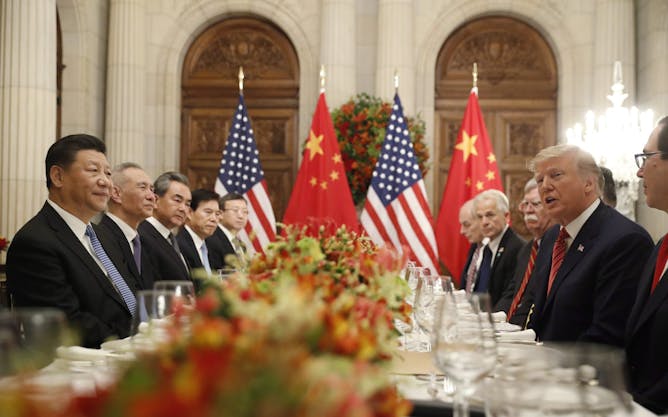|
It’s a story that has made headlines around the world: when the founder of the Canadian cryptocurrency exchange QuadrigaCX died suddenly a year ago, he was the only person in the company with the passwords to clients’ deposits worth $250 million. Today in The Conversation Canada, Lisa Kramer of the University of Toronto says the QuadrigaCX case is a prime example of the murky regulations that govern the cryptocurrency world.
The promise of 3D printers seems unlimited and Sylvie Albert of the University of Winnipeg writes about how the technology can help cities radically redefine urbanism.
The ongoing trade dispute between the United States and China seems to be thawing, but what will be the long-term impact of the negotiations? James Anderson of Queen’s University suggests China could successfully turn a new trade deal into an opportunity to surpass the U.S. as the world’s greatest economic power.
And finally….International Women’s Day is this Friday and in the first of several stories we’ll have to make the occasion, Judy Illes of the University of British Columbia looks at some ground-breaking female scientists who made their mark in health, science and innovation.
Regards,
|

Canadian CEO Gerald Cotten died in December, taking to his grave the passwords to unlock his cryptocurrency clients’ $190 million.
Dmitry Moraine/Unsplash
Lisa Kramer, University of Toronto
The CEO of a Canadian cryptocurrency company died recently, and took his passwords with him, leaving his clients high and dry. The debacle illustrates again that cryptocurrencies should be regulated.
|

As 3-D printing revolutionizes manufacturing, new possibilities for cities emerge.
Shutterstock
Sylvie Albert, University of Winnipeg; Jeremy Millard, University of Bradford; Tomas Diez
3-D printing has the potential to disrupt local manufacturing, and re-configure approaches to urban design, planning and production.
|

U.S. President Donald Trump with China’s President Xi Jinping during a bilateral meeting in December 2018 in Buenos Aires, Argentina.
(AP Photo/Pablo Martinez Monsivais)
James L. Anderson, Queen's University, Ontario
America may have missed a window of opportunity to curb China’s rise when it pulled out of the Trans-Pacific Partnership.
|

Women leaders in science, health and innovation are collaborating on a global scale to address gender inequality.
Shutterstock
Judy Illes, University of British Columbia
Women leaders in science and technology are working together to address the gender imbalance in their fields.
|

Le mal de dos est la principale cause d’invalidité à travers le monde. Mais avons-nous la bonne approche pour le traiter?
Shutterstock
Brenna Bath, University of Saskatchewan; Catherine Trask, University of Saskatchewan
Le mal de dos est la principale cause d’invalidité à travers le monde. Mais avons-nous la bonne approche pour le traiter? On offre trop de médicaments, mais pas assez de physiothérapie.
|
Science + Technology
|
-
Wendy Whitman Cobb, Cameron University
SpaceX's advances in space technology have reduced barriers to space and changed the direction of American space policy, but it is not without its challenges.
|
|
Health + Medicine
|
-
Alexandra Hansen, The Conversation
Not eating animals might make you feel more virtuous, but is it good for your health?
|
|
Politics
|
-
Ghaliya Djelloul, Université catholique de Louvain
Demonstrations against the current regime have opened up a space for debate and self-expression in Algeria, recalling the crucial need for a free and involved civil society.
|
|